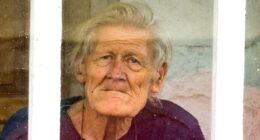
A heart attack is a serious medical emergency whereby the supply of blood to the heart is suddenly blocked, usually by a blood clot. It requires a swift medical intervention to stave off the risk of permanent damage to the heart muscle. Essential to this effort is being aware of the plethora of warning signs.
Most people associate chest pain with a heart attack but numerous sensations can spell an “impending” attack too, notes Harvard Health.
According to the health body, “pain, numbness, pinching, prickling, or other uncomfortable sensations in one or both arms, the back, neck, jaw, or stomach”, can spell an attack.
Other signs to spot include:
- Shortness of breath
- Sudden nausea or vomiting
- Lightheadedness or dizziness
- Unusual fatigue
- Heat/flushing or a cold sweat
- Sudden heaviness, weakness, or aching in one or both arms.
If you notice one or more of the signs above in yourself or someone else, call your emergency services “right away”, advises the health body.
READ MORE: ‘Significant impact’: Pharmacist warns ‘soluble’ tablets can increase risk of stroke
Despite the urgency, recent polling suggests the UK public has an inadequate lack of knowledge about the warning signs of a heart attack and how to respond to one.
Recent research identified that three in four people thought a heart attack was the same as a cardiac arrest.
The polling also showed that fewer than half of people said they would dial 999 if they or a loved one experienced lesser known symptoms of heart attacks.
The worrying findings prompted the NHS to launch a campaign in February to encourage people to dial 999 when they are having early signs of a heart attack.
DON’T MISS
Man, 56, rapidly declines from B12 deficiency after foot problem [INSIGHT]
Blood clots warning: Four types of drink to avoid [ADVICE]
Heartburn medicine linked to 7 cancers [INSIGHT]
Speaking at the time of the launch, England’s top doctor said thousands of deaths could be prevented with earlier treatment if people recognise these vital signs.
READ RELATED: Straightening Your Hair Can Cause This Scary Disease, Study Says
NHS medical director, Professor Stephen Powis, said: “Sadly, cardiovascular disease causes a quarter of all deaths across the country and we have identified this as the single biggest area where we can save lives over the next decade.
“This new NHS campaign will be a vital tool in that lifesaving mission – helping people to recognise when they or someone around them is experiencing a heart attack and when to seek early medical help cannot be underestimated.
“It can be easy to dismiss early symptoms as they don’t always feel severe, but it is never too early to dial 999 in this circumstance – and the faster you act, the better the chance of a full recovery.”
READ MORE: Just one tablespoon of sesame seeds daily could slash cholesterol levels – expert
There are more than 80,000 hospital heart attack admissions in England every year.
The overall survival rate for people experiencing a heart attack is seven in 10 and this increases to nine in 10 for those who come forward for early hospital treatment.
The NHS research also shows that whilst 70 percent of those surveyed understood that pain in the chest is a symptom of a heart attack, just 41 percent knew sweating was a symptom and only 27 percent understood feeling weak, lightheaded or a feeling of general unease were also symptoms.
Professor Nick Linker, consultant cardiologist and NHS national clinical director for heart disease, said at the time: “These survey findings present what is a familiar picture to NHS cardiology colleagues.
“Often people don’t realise they’re having a heart attack, either because they don’t recognise the early signs, or because they don’t consider them severe enough to trouble the NHS.
“But make no mistake, a heart attack is a medical emergency, and it’s never too early to call 999 and describe your symptoms.”
How to respond
The NHS says: “If you have had a heart attack, it’s important that you rest while you wait for an ambulance, to avoid unnecessary strain on your heart.
“If aspirin is available and you are not allergic to it, slowly chew and then swallow an adult-size tablet (300mg) while you wait for the ambulance.”
Source: Daily Express









